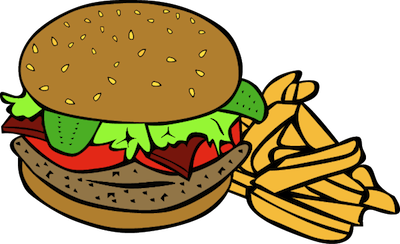Transdisciplinarity of Gardens
Gardens can be grown anywhere: balconies, rooftops, polar greenhouses, and schoolyards. Humans have been tending gardens, and adapting local environments with edible species for tens of thousands of years. Read More...
Comments
Ecology and Senses
19/08/11 14:45 Filed in: ecology
Learning about ecological systems is at the very centre of learning from gardening. Understanding that systems are connected, reliant, redundant, and recursive comes from the very act of digging, planting, watching, watering, and fertilizing. Read More...
Winter - A letter from Frankia Bacteria
19/08/11 14:40 Filed in: ecology | veggie burger and fries
Mr. Frankia spp. and his friends have a message to you. Read More...
Gardening and Systems
How can one play with understanding systems theory? An activity for learning to recognize systems and be creative. Read More...
Permaculture and Complexity
19/08/11 14:26 Filed in: ecology
Permaculture represents a complexity theory approach to gardening and is a great way to include a mindful and inquiry-based investigation into a school garden. Read More...
Humanities in Gardens
19/08/11 14:20 Filed in: humanities
What does it mean to learn about where you are through a lens of human expression? And how does working with nature affect us in our day to day lives? Read More...
Spring - It's time to Plant from Mr. Potato
19/08/11 14:15 Filed in: ecology | veggie burger and fries
Spring has come and it is time to start organizing your seeds. If you have bought seeds, you will see on the back of the package that there are instructions on when to start growing them. Typically there are “start inside” seeds and “direct-seeding” seeds. Read More...
Poetry in Gardens
19/08/11 14:08 Filed in: humanities
Humans have shaped language to resemble thoughts, concepts, and experiences. Prose and poetry being among the most powerful methods for eliciting images and expressing understanding. The romantic poets (1700/1800s) were known for there interest in intuitive natural poetry (a reaction to the enlightenment rationalist movement going on around them at the time). Read More...
Mapping Math in Gardens
18/08/11 12:37 Filed in: math
Mathematics is an abstraction of nature. It allows us to represent complex thoughts, processes, and relationships through a fundamental and transferable language. Read More...
Summer - Watering, waiting, and watching from Rocky Raccoon
18/08/11 12:35 Filed in: ecology | veggie burger and fries
So you think that you and your students can just take the summer off, go on vacation, slack off and when you come back to school you will have a thriving veggie garden? Read More...
Measuring in Gardens
18/08/11 12:35 Filed in: math
Perhaps one of the most magical elements of growing your own food is seeing how things grow and the diversity among different species. Even the most experienced gardeners feel their hearts flutter when they see new shoots popping out of the soil. Seeing plants grow helps connect us with the food that they provide through the sense of mindful cultivation. Read More...
Journaling in Gardens
18/08/11 12:32 Filed in: art
Gardens are art themselves. Where you plant, when you plant, and the species that you plant combine into a complex assemblage of interacting components. As gardner-artists, we can play with colour, texture, aromas, fuzzyness, and taste. Read More...
Fall - The plants tell you when to harvest
18/08/11 12:31 Filed in: ecology | veggie burger and fries
Well you are back at school teacher. and we, the plants have definitely missed you. We have been well looked after by the community, even harvested when the beans came up early - and frozen for your class. Read More...
Sculpture in Gardens
18/08/11 12:02 Filed in: art
The expression of a person’s ecological literacy reinforces and supports their development in a local environment. Art can act as an extremely powerful tool for young people to explore their creativity and integrate their knowledge among different disciplines which helps develop their worldview and belief systems. Read More...
